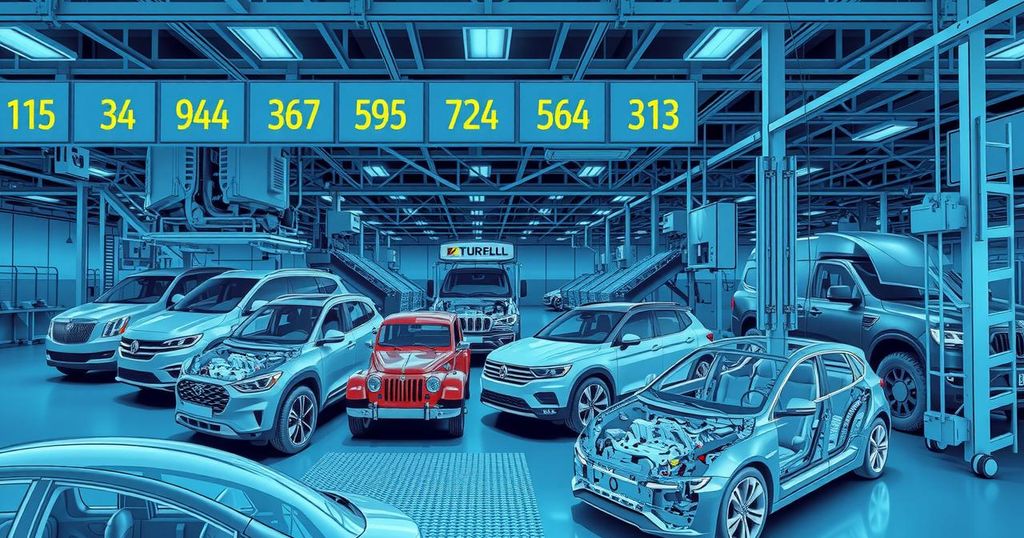Impact of Trump’s Auto Tariffs on India’s $7 Billion Component Exports

Donald Trump’s new auto tariffs impose a 25% charge on vehicle imports, creating uncertainty for India’s $7 billion auto component exports. The impact will likely be felt most by Jaguar Land Rover and manufacturers dependent on US sales. However, some analysts argue the actual effect on India’s auto industry may be minimal due to limited export volumes and competitive pricing advantages.
US President Donald Trump has announced a 25% tariff on all automobile imports, effective April 2, which raises concerns over India’s approximately $7 billion export market for auto components. This move primarily impacts companies like Jaguar Land Rover (JLR), whose 23% of over 400,000 annual sales come from the US, all manufactured in the UK. The new tariff may pressure JLR’s profitability, with options including passing costs to consumers or exploring domestic manufacturing in the US.
Sona BLW and Bharat Forge are notable players with considerable dependence on US revenues, deriving 43% and 38% of their returns respectively from this market. India exported around $6.79 billion worth of auto components to the US in FY24, while facing minimal direct competition in the fully built car segment. Industry analysts predict that the upcoming tariffs may significantly compress operating margins by about 125 to 150 basis points, stressing the importance of US markets for component exports.
Experts like Mrunmayee Jogalekar emphasize the limited export volume of Indian vehicles to the US, noting Tata Motors’ JLR is the most affected. The potential tariff impact extends mostly to auto components, like engines and electric parts, which constitute a significant revenue source for Indian manufacturers. However, companies with US manufacturing facilities may mitigate losses through better capacity utilization.
Ajay Srivastava of GTRI suggests that the impact on India’s auto industry may not be as severe as anticipated, as the exposure to US tariffs is relatively low. He highlighted that India’s exports to the US represent only a small fraction of total exports, indicating manageable risk overall for the industry. The US imported $89 billion in auto parts globally last year, where India’s $2.2 billion contribution is minimal.
While tariffs present challenges for Indian auto manufacturers, industry leaders believe they can adapt and maintain market presence. The importance of maintaining market share amidst these tariffs is recognized, especially as Indian providers benefit from lower manufacturing costs. Despite challenges, some companies may need to adjust their global expansion strategies, especially concerning projects related to electric vehicles.
In summary, Donald Trump’s auto tariffs significantly affect India’s auto component exports, especially for manufacturers like Jaguar Land Rover. The US market plays a crucial role, contributing 27% of total auto exports. While the anticipated tariffs might compress profit margins, the actual impact on car exports may be limited. Indian companies, particularly those with US-based facilities, could find ways to adapt amidst these challenges, but they may need to reconsider future expansion plans.
Original Source: www.hindustantimes.com





